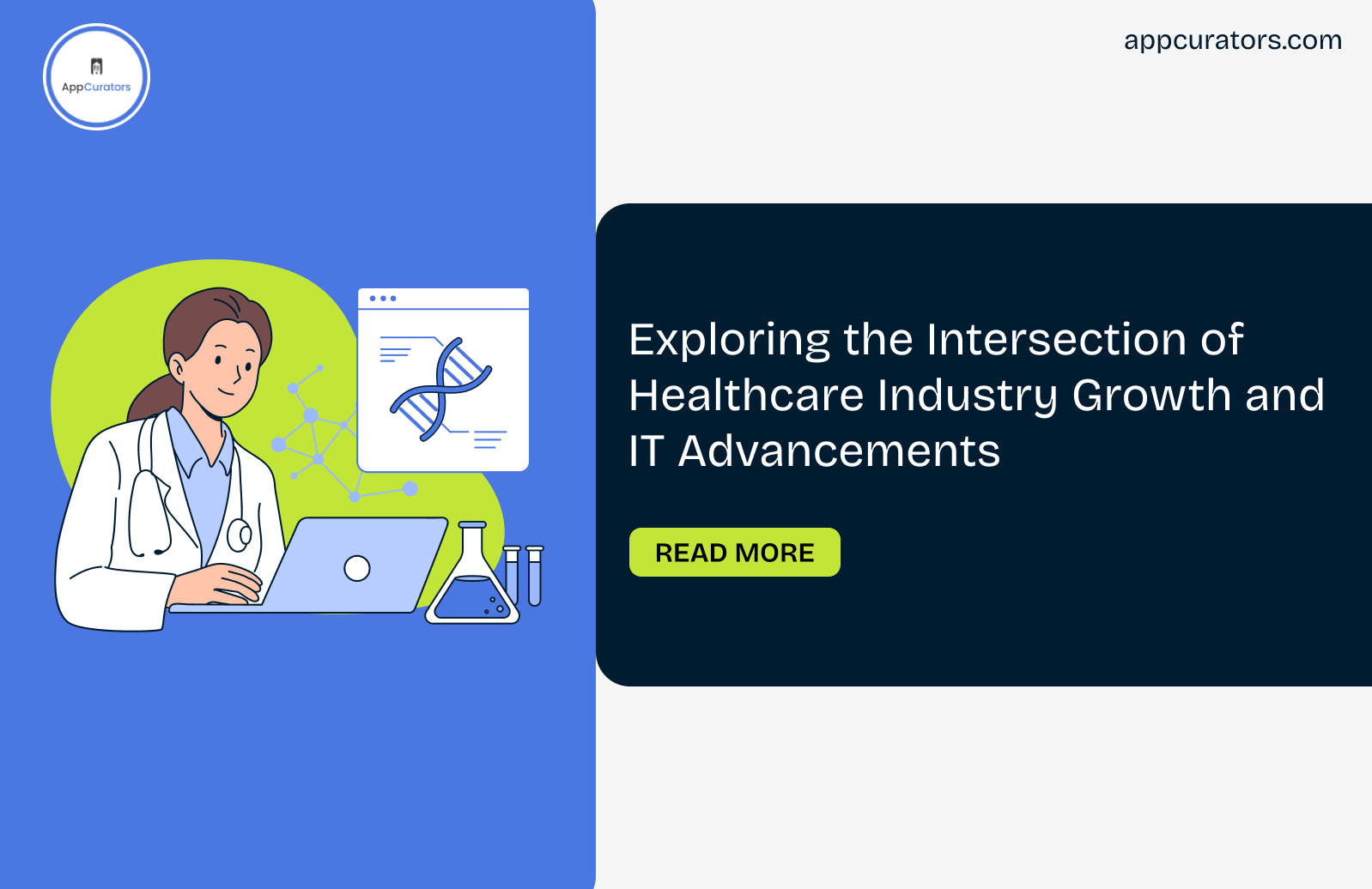Exploring the Intersection of Healthcare Industry Growth and IT Advancements
The healthcare industry is a boon for every country, assisting in the treatment of its citizens and furthering research and development in the field. We all witnessed the importance of healthcare services during the Covid-19 pandemic. Following that wave, it’s become crucial to explore how much AI can advance this sector with just a few clicks.
The increasing demand of AI in healthcare has taken a separate place, as some AI applications are improving healthcare delivery in preventive care, i.e, disease diagnoses and prediction, treatment plans and more. Using Software Development Services in healthcare has vivid benefits to maximum output, along with some pitfalls of using AI in healthcare, such as unintended bias, data privacy issues.
How Advanced Healthcare IT Succeeds in Different Areas
Advanced healthcare IT succeeds in various areas via its ability to refine processes, enhance patient care, improve efficiency and facilitate data-driven decision-making.
- Clinical Decision Support System (CDSS) - Sophisticated healthcare IT systems, like CDSS, help doctors diagnose, treat, and prevent medical errors, They analyze patient info and medical knowledge to give real-time advice, making patient care better.
- Electronic Health Records (EHR)- Advanced electronic health record (EHR) systems ensure patient records flow smoothly between different healthcare places. This helps keep care consistent and avoids unnecessary tests and treatments.
- Telemedicine and Remote Monitoring (TRM)- Healthcare IT supports telemedicine, allowing people to consult with doctors remotely. It also helps monitor patient’s health stats from afar, enabling quicker action and tailored care.
AI in Healthcare: Emerging Trends
There are numerous web solutions for the healthcare industry that aim to empower doctors and cultivate relationships between doctors and patients. According to WHO reports, the ideal doctor and patient ratio should be 1:1000. Fortunately, India has made significant progress, boasting a ratio of 1:854 as of 2022.
- Medical Imaging Interpretation - Now computers are helping doctors understand X-rays, MRI, and CT scans better, This helps them find problems faster and make accurate diagnoses.
- Personalized Treatment Plans - Computers are looking at lots of information about patients, like theri genes, medical history, and lifestyle, to create special treatment plans just for them.
- Drug Discovery and Development - Computers are making it easier and faster to find new medicines. They can predict if a drug will work well and help design better tests to make sure it’s safe and effective.
Government’s Increases focus on AI
Under the umbrella of the digital India initiative, India has witnessed various initiatives taken by the Indian Govt. A report says that India aims to draft a 5 year plan focusing on specific industry and research programmes as part of its mission to encourage AI adoption in India. For the healthcare sector of India, the government has laid down numerous regulations to fast-track AI-implementation in healthcare.
According to the Integrated Health Information Program (IHIP) of 2018, the goal is to provide all Indian citizens with Electronic Health Records (EHR) and enhance compatibility among existing EHR/EMRs.
At AIIMS, New Delhi, the Milagrow Sanbot ELF Humanoid Robot has been introduced, This robot allows doctors to monitor patients remotely, without physical contact, Additionally, the state of Uttarakhand has adopted the Monal 2020 monitoring system, a wearable device that remotely capture and displays patient’s vital signs to doctors. Regardless of location.
Conclusion
In essence, software solutions are helping to reduce health risks and make things easier for healthcare providers. If the government backs it up, more people can benefit from these services, making healthcare better for everyone.









